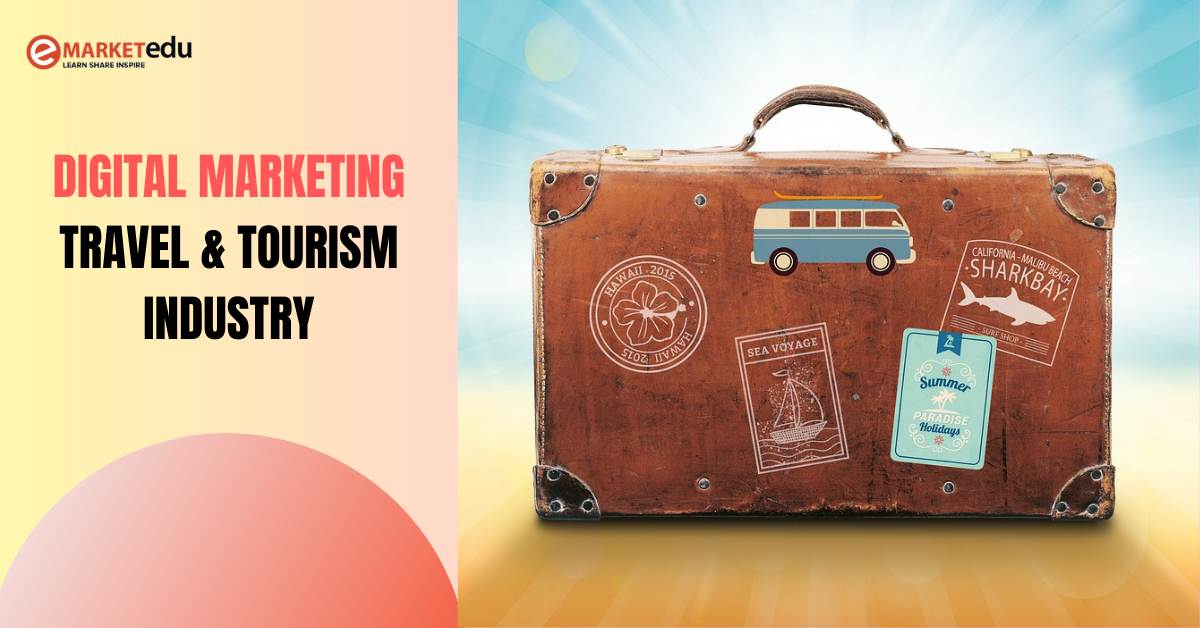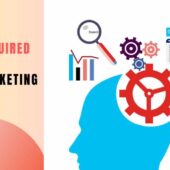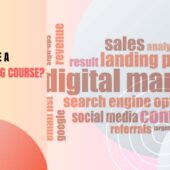Table of Contents
ToggleDigital Marketing For Travel and Tourism Sector in India
“One must travel to learn.” – Mark Twain
Travel and tourism is a broad and diverse sector, comprising many industries, like hospitality, transportation, tourist destinations, travel companies and many more. It is the sector providing one of the largest employment generations in India.
- India is placed 6th in terms of travel & tourism sector’s total contribution to GDP in the world
- 2nd place in terms of travel and tourism employment
- 39th place in World Economic Forum’s travel & tourism development index
- It is estimated that Travel & Tourism sector in India will grow at 9.6% annually between 2024 to 2028 and will reach a market volume of $34.25 billion by 2028
Types of Travel and Tourism
- Leisure Tourism
- Business Tourism / MICE (Meetings, incentives, conferences and exhibitions)
- Adventure Tourism
- Medical and Wellness Tourism
- Cultural Tourism
- Ecotourism
- Culinary Tourism
- Pilgrimage Tourism
- Rural Tourism
Sectors under Travel and Tourism Industry
- Accommodation (Hotels, Resorts, Bed & Breakfast, Hostels, Vacation Rentals etc.)
- Transportation (Airlines, Rail Services, Car Rentals, Cruise Liners, Public Transportation etc.)
- Food & Beverage (Restaurants, Cafes & Coffee Shops, Bars & Night Clubs, Street Food Vendors etc.)
- Attraction & Entertainment (Natural Attractions, Cultural and Historical Sites, Theme Parks and Amusement Parks, Festival and Events etc.)
- Tour Operators and Travel Agencies (Tour Operators, Travel Agencies, Online Travel Agencies (OTA’s))
- Adventure and Outdoor Activities (Adventure Tourism, Ecotourism, Sports Tourism etc.)
- Wellness & Medical Tourism (Spa and Wellness Resorts, Medical Tourism)
- Meetings, Incentives, Conferences, and Exhibitions (Conference Centers, Exhibition Halls, Incentive Travel)
- Shopping Tourism (Malls and Shopping Centers, Local Markets & Bazaars, Duty Free Shops)
- Support Services (Travel Insurance Providers, Currency Exchange Services, Tourist Information Centers etc.)
Also know how – Digital Marketing is helping Automobile Industry to grow
Digital Marketing for Travel & Tourism Business
Digital marketing plays a crucial role in the travel and tourism sector by enhancing the visibility of destinations, attracting potential travelers, and facilitating better customer engagement. Below are some of the key aspects of its role.
- Increased Visibility and Reach
- Search Engine Optimization (SEO): Optimizing travel websites for search engines helps attract organic traffic from users searching for travel-related information.
- Pay-Per-Click Advertising (PPC): Targeted ads on search engines and social media platforms can drive traffic to travel websites, Tour Operations, Hotels, Spa, Airlines etc.
- Content Marketing: High-quality content, such as blogs, videos, and guides, can attract and engage potential travelers, providing valuable information and inspiring travel decisions.
- Social Media Engagement
- Digital Platforms: Social media platforms like Instagram, Facebook, and Twitter are essential for sharing visual content, engaging with customers, and building brand loyalty.
- User-Generated Content: Encouraging travelers to share their experiences and photos can enhance credibility and provide authentic content for marketing purposes.
- Influencer Marketing: Collaborating with travel influencers can help reach a wider audience and build trust.
- Personalized Marketing
- Email Marketing: Personalized email campaigns can nurture leads, offer travel deals, and provide customized travel recommendations.
- Customer Relationship Management (CRM): Using CRM tools to segment customers and tailor marketing efforts based on their preferences and behavior.
- Online Reviews and Reputation Management
- Review Sites: Actively managing and responding to reviews on sites like TripAdvisor, Yelp, and Google My Business helps build trust and improve the destination’s reputation.
- Feedback Circuits: Collecting and analyzing traveler’s feedback to enhance services and address concerns swiftly.
- Mobile Marketing
- Responsive Design: Ensuring travel websites are mobile-friendly, as many traveler’s use smartphones to research and book travel.
- Apps: Developing mobile apps for booking and travel planning, providing convenience and enhancing the customer experience.
- Virtual Tours and Experiences
- 360-Degree Videos and VR: Offering virtual tours and experiences to give potential traveler’s a taste of the destination before they book.
- Augmented Reality (AR): Enhancing the travel experience with AR applications that provide additional information and interactive content.
- Analytics and Data-Driven Decision Making
- Tracking and Analysis: Using analytics tools to track the performance of digital marketing campaigns, understand customer behavior, and optimize marketing strategies.
- Data-Driven Insights: Leveraging data to make informed decisions about targeting, budgeting, and content creation.
- Booking and Reservations
- Online Booking Systems: Integrating seamless booking systems on websites and mobile apps to provide a hassle-free booking experience.
- Dynamic Pricing: Implementing dynamic pricing strategies based on demand, seasonality, and customer behavior to maximize revenue.
- Global Reach and Localization
- Multilingual Content: Creating content in multiple languages to cater to international traveler’s.
- Localized Campaigns: Tailoring marketing campaigns to specific regions and cultures to resonate with local audiences.
- Sustainability and Eco-Tourism Promotion
- Green Marketing: Promoting eco-friendly practices and sustainable tourism options to attract environmentally conscious traveler’s.
- Education and Awareness: Using digital platforms to educate traveler’s on responsible tourism and environmental conservation.
Conclusion:
To conclude, with digital revolution and economic prosperity in India, digital marketing is very essential for the travel and tourism sector to stay competitive, engage with customers, and drive growth in a highly connected and dynamic marketplace.
Refer our most read blog- 50 Best Ways on How To Earn from Digital Marketing at Home?









